This is not an easy paper to write*. It is the day before our group meets and I continue to resist doing it, finding anything else to do but this. So, here goes.
Since first signing up for the Foundations course I have been wrestling with the why and the what of it. Why did I take this course? What do I hope to gain? Who am I and what is my place in the course and in my life?
Both the Transitions book and the seventh precept have ushered in new clarity. I think 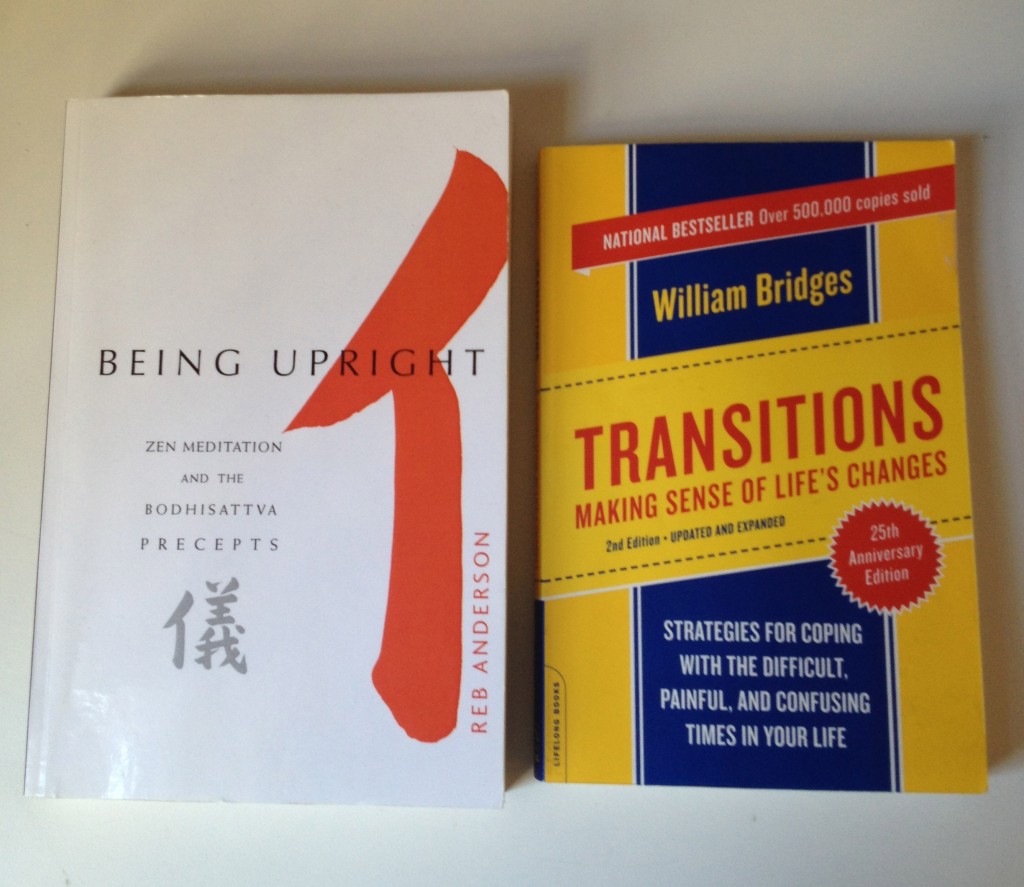 the Foundations course was the external opportunity that will help me with yet another new beginning in my life. I have had quite a few of them.
the Foundations course was the external opportunity that will help me with yet another new beginning in my life. I have had quite a few of them.
I have understood many times in the past the importance of the neutral zone, the fallow period, the corridor between endings and beginnings. I have been there numerous times and even in my writing practice I have come to understand how riding my bike or reading a book or taking a walk or just sitting on the couch are all necessary activities and part of the process of writing. It took me a long time to embrace that.
What I didn’t actually know until now, after reading Transitions, is that my life has been in a bit of a neutral zone since 2010 when my Zen sangha blew up and I lost that anchor, which was a touchstone for my self-identity. Outwardly, it didn’t appear to be so neutral as I continued to do all the same things I had done before (except practice with that sangha). But internally there were major shifts and quakes going on that I am only now beginning to understand. My life followed pretty exactly the path that Bridges outlines in his book.
First there was the disengagement where I was separated from my “familiar place in the social order” i.e. my teacher and my sangha. Then came the dismantling of my identity that I had built based on that world, and the disidentification with that identity: I was no longer a Zen student, I no longer had a Zen teacher, I was no longer a member of a spiritual community. This was all-important to me, not just from a personal growth perspective, but as a teacher and writer it gave me grounding, a base from which to operate. It was all at once, shocking, scary, angering, tumultuous, and very, very sad. At the same time this was going on, my partner’s mother was killed in a tragic car crash and I got married. Needless to say, I then entered the stage of disenchantment, where I floated “in a kind of limbo” between two worlds. I did not want to seek out a new “trustworthy” teacher or a new sangha but I did want to change. I had to “loosen the bonds of the person” I thought I was. Then came the disorientation, although I didn’t define it as such at the time, but it fits so naturally with my experience.
As I look back on that time, between 2010 and 2013, I see that I was a bit at sea. I felt much like Tolstoy: “I felt that something had broken within me on which my life had always rested, that I had nothing left to hold on to, and that morally my life had stopped.” Just as he did, I asked myself: “What will be the outcome of what I do today? Of what I shall do tomorrow? What will be the outcome of all my life? Why should I live? Why should I do anything?”
I continued to teach, but I felt like a bit of a fraud, no longer being connected to a teacher. I continued to write, but I moved toward fiction, as continuing to write non-fiction based on Zen teachings again felt fraudulent. I convinced myself that writing fiction was what I’d always wanted to do anyway, so I embraced it. It felt like a new beginning, but it may have only been “attentive inactivity and ritualized routine.” Time will tell with that one.
My spiritual life and my work life have been integrally connected over the past twenty five years, so it makes sense that the loss of my sangha had me questioning everything I was doing in my work life. I think I took the Foundations course hoping to find some direction with that. And though the work I’ve done over the past seven months has been deep and enriching, continuing on the path toward CPE and Chaplaincy doesn’t feel right at this moment. But the work has brought me to a new sense of myself and given me some confidence to move forward in a different way than I have previously.
And that brings me to the precept of not praising myself at the expense of others.
Since my first book was published in 1995, I would often say to people: “I may write spiritual self-help books, but I don’t read them.” Since being divorced from my sangha, when listening to other teachers give dharma talks or other teachings: I would sometimes say to myself: “I could do that just as well. I have nothing to learn from this person.”
I feel both shame and liberation as I think about sharing this. It really struck me this week, as I read the Being Upright chapter on this precept, how self-centered and self-concerned I have been, how I have taken myself too seriously, how I have disrespected myself and taken myself for granted.
Oddly enough, over the past few weeks I have entered what feels like a new stage in all of this. I am embracing the work I’ve done with a looser grip and a less self-centered attitude. I have been able to put into perspective what I know, what I don’t know and what I still need to learn. I have been talking to people about next steps in a way that I never have before. I am asking for help. I am able to take in how others see and experience me without taking any of it too seriously.
I don’t know yet where this is leading, but it feels like a new level of surrender. It feels like I am emerging from the forest and finally ready to teach what I have learned. It feels like a new beginning. And I am grateful to all of you who are reading this, to you my teachers.
*From Between Two Worlds– Reflection Paper #7 – Myochi Nancy O’Hara – April 3, 2014
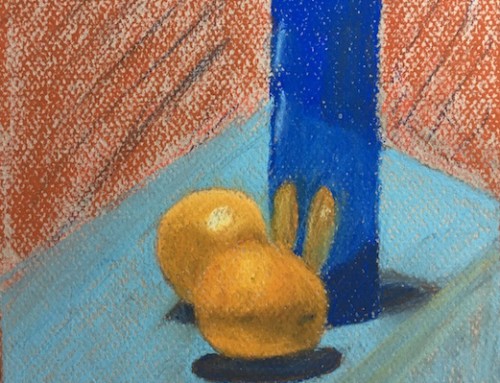
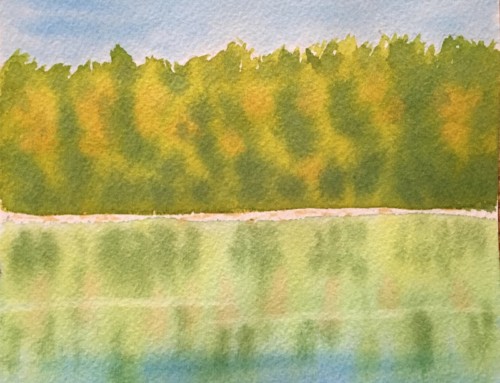
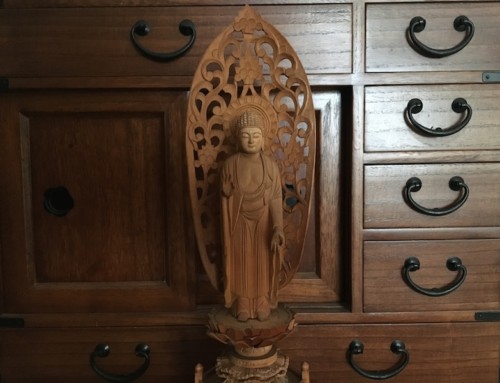
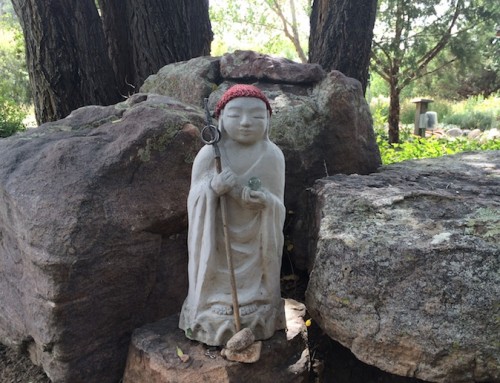

Dear Myochi,
Thanks for such a profound sharing of what is going on in your life. While the self proclaimed duties of my life are very different – I too felt the disruption of our sangha and an alienation from Zen. The choice to make such a big change is daunting as we all define ourselves to some extent with what we do. We all make choices that in hindsight were big but did not seem so at the time. We often make these choices without being self aware. As people mature some people’s “self awareness” is just a rigid shell of past beliefs that trap them into becoming more of what they were in the past. We see it all of the time. As a result no real change or self challenge of past held beliefs occur. But choices made from real self awareness that balances heart and mind and our place on earth can’t ever really be wrong because they just become the stream of our life as it flows effortlessly towards the future. Thanks again for such a beautiful piece.
Banko, thank you for your thoughtful comments and your friendship. I am so happy to still have you and other members of the splintered sangha still in my life. love, Myochi